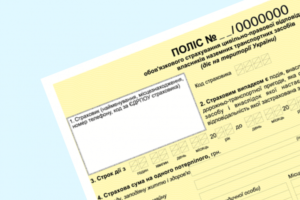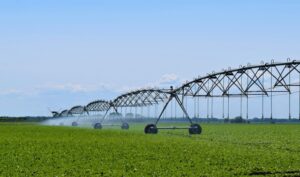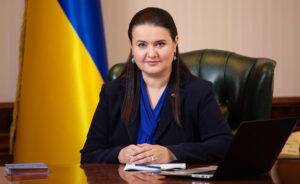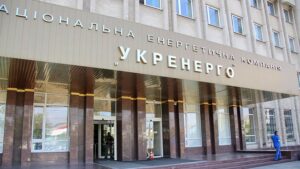
Businessman Vyacheslav Mishalov, who has significant assets in several sectors, mainly concentrated in the Dnipro region, is refraining from investing in Ukrainian real estate until values in this market are reassessed, he said in an interview with the Interfax-Ukraine news agency.
“I am not a fan of construction or the construction business because real estate prices in Ukraine are not high enough to make it a good business. Accordingly, you either have to build poorly or sell at high prices. I don’t like this format,” he said.
Mishalov added that he does not see much success among the few developers who are trying to build high-quality properties and sell them at high prices.
“There are no new construction projects, and I don’t think there will be any in the near future. While there is still some movement in Kyiv, in Dnipro I see several developers just finishing construction and fulfilling their obligations. With that level of cost, it is not interesting to me as an investor,” the businessman said.
According to his assessment, there was a surge in western Ukraine, but it was very short-lived: those who managed to get out of there with their money were lucky, while the rest will remain there with significant losses.
“I live in Dnipro, which has been hit hard throughout the war, but I have no intention of buying real estate in western Ukraine. For many reasons. I believe that it is overvalued today. And as soon as there is some prospect of stability, it will turn to rubble. So it’s not an asset, it’s some kind of psychopathy,” Mishalov believes.
According to him, it probably makes sense to invest money in some real estate in western Ukraine if you plan to move there. “But there is no quality real estate there, and there are no plans to build any, because everyone was chasing hype and speed — to get money from potential clients as quickly as possible. It’s not quality construction,” he added.
The investor noted that when he was choosing where to buy an apartment in Dnipro and Kyiv, there were literally only a few buildings that were well-designed and built.
“There needs to be a major revaluation of values in the real estate sector. Construction must begin in accordance with existing building codes,” Mishalov emphasized.
At the same time, he said that he has a project to restore the facade of a historic building in the center of Kyiv, on which he wants to spend “tens of millions of hryvnias.” According to the businessman, he was “in a good mood” after talking with the first deputy head of the State Architectural and Construction Inspection, Iryna Gioane, who on her own initiative welcomed the company’s initiative.
“We have been given permission to restore the building. We will try to finish everything beautifully by late autumn—restoring it as it was designed 100 years ago,” Mishalov said.
He added that the company had been trying to obtain this permit for a year and a half, even though there is little demand for restorers in the country, with only two teams remaining: one in Kyiv and one in Odesa.
He also clarified that his businesses operate separately from those of his father, Dmitry Mishalov, also a well-known Dnipro businessman and developer (Master Group).
As the businessman said in an interview, all his assets are already quite well structured and managed through the closed non-diversified venture corporate investment fund Fortress.
Mishalov’s investments include the financial company Ye Groshi, the provider Fregat, the Lotus network of four gas stations in Dnipro and Novomoskovsk, the petroleum products trader Lotus Oil Trading, an IT division, and the news portal Informator.
The fund, in turn, is managed by the asset management company MPSS LLC from Dnipro, owned by Serhiy Shishkin (50%), Ihor Sukhodolsky (41%), and Olga Mukhina (9%).
“I don’t have my own asset management company; I manage everything through the fund as much as possible. In my opinion, today it is one of the best tools for ownership and management, including financial flows,” Mishalov emphasized.
Source: https://interfax.com.ua/

Insurance companies that are members of the Motor (Transport) Insurance Bureau of Ukraine (MTIBU) concluded 3.432 million compulsory civil liability insurance contracts for owners of land vehicles This is 6.45% less than in the same period last year.
According to data published on the MTIBU website, 3.418 million contracts were concluded in electronic form (+24.5%).
In January-June 2025, the Bureau’s members increased the collection of insurance payments under MTPL policies by 2.3 times to UAH 10.457 billion, including UAH 10.424 billion under electronic contracts (2.8 times more).
The total amount of insurance indemnities accrued under domestic insurance contracts increased by 24.58% to UAH 2.885 billion, including UAH 762 million paid using the “Europrotocol” (+68%).
The Bureau also recorded a 2.2% increase in the number of settled insurance claims to 72,400, including data on the use of the “Europrotocol” – 31,800 (+25.5%).
The MTIBU is the only association of insurers in Ukraine that provides compulsory civil liability insurance for owners of land vehicles for damage caused to third parties. The Bureau has 27 insurance companies as members.

Investment and Industrial Company Poltavazernoprodukt, part of Astarta, Ukraine’s largest sugar producer, has increased its irrigated area to 1,100 hectares, the company’s press service said on Facebook on Wednesday.
Serhiy Cherevik, regional director of Poltavazernoprodukt, quoted in the post, noted that irrigation has become a key factor in stable yields.
“This allows us to make the most efficient use of every millimeter of moisture. This year, we are growing hybrid corn and commercial soybeans on irrigated land.
Irrigation is an investment not only in this year’s harvest, but also in the stability and development of agricultural production in our region. We have ambitious plans to expand the irrigated area, because the future of Ukrainian agribusiness lies in sustainable and efficient technologies,” he emphasized.
The company specified that before the next production season, Poltavazernoprodukt specialists restored and repaired communications and water supply stations, cleaned water channels, graded the lines for sprinkler machines, serviced the sprinkler machines themselves, and concluded water supply contracts.
“Eight sprinkler machines are operating at full capacity, serviced by 14 hydraulic engineers in several shifts,” the company said.
Astarta is a vertically integrated agro-industrial holding operating in eight regions of Ukraine and the largest sugar producer in Ukraine.
It comprises six sugar factories, agricultural enterprises with a land bank of 220,000 hectares, dairy farms with 22,000 head of cattle, an oil extraction plant in Hlobyn (Poltava region), seven elevators, and a biogas complex.
In 2024, Astarta increased its net profit by 34.5% to EUR83.25 million, while its consolidated revenue decreased by 1.1% to EUR612.15 million.
In the first quarter of this year, the agricultural holding’s revenue fell by 24.9% to EUR124.58 million, while net profit fell by 28.8% to EUR6.42 million.
On June 12 this year, the shareholders’ meeting approved the payment of dividends for 2024 in the amount of EUR0.5 per share for a total of EUR12.5 million, which is in line with the figures for the previous two years.

Preferential roaming between Ukraine and the EU will remain available until the end of 2025, according to the National Commission for the State Regulation of Electronic Communications, Radio Frequency Spectrum, and Postal Services (NCC).
According to a statement on its Facebook page on Wednesday, the NCCIR and the European Commission confirm the extension of the Joint Statement between Ukrainian and European operators on ensuring roaming for Ukrainians in the European Union for the next six months, until December 31, 2025.
It is noted that this is the sixth extension of the agreements, which have been in force since April 2022.
“Staying connected is a basic need that becomes critical in times of war. Since the first days of the full-scale invasion, the NCCIR has been working to ensure that Ukrainians remain connected, including abroad,” said NCCIR Chair Lilia Malyon.
“The joint statement has become an exceptional and effective tool. I am grateful to Ukrainian and European operators who continue to provide favorable conditions for Ukrainians, as well as to colleagues from the EC and BEREC for their support and joint work. Our team continues to move confidently towards a Single Digital Market for roaming in the EU,” Malion added.
In addition, the joint statement also provides favorable communication conditions for EU citizens in Ukraine.
The press service also reminded that the NCC team, together with colleagues, is completing work on Ukraine’s accession to the EU’s single roaming area “Roaming Like at Home” (RLAH), which is expected as early as January 1, 2026.

Oksana Markarova will be recalled from Washington as part of measures to strengthen relations with Trump’s team.
Volodymyr Zelensky is replacing Ukraine’s ambassador to the US, who has been heavily criticized by leading Republicans, as part of a diplomatic reshuffle aimed at strengthening relations with the Trump administration.
Ukrainian Foreign Minister Andriy Sibiga confirmed on Wednesday that Oksana Markarova will be recalled from Washington after four years in the post. He described her as “extremely effective, charismatic and one of our most successful ambassadors.”
He indicated that several high-ranking ambassadors in G7 and G20 countries would also be transferred, telling Ukrainian radio: “Every diplomat has a rotation cycle.”
The diplomatic reshuffle comes at a critical moment in the war. Russian troops are advancing on a 600-kilometer front, and their pace has accelerated in recent weeks. A Kremlin spokesman said, “We are advancing.”
Russian combat units have approached the crossing into the Dnipropetrovsk region for the first time.
Late on Tuesday night and early Wednesday morning, Russia launched its largest air strike since the start of its full-scale invasion in February 2022. It involved a record number of 728 Shahed drones, as well as 13 cruise and ballistic missiles. Most of them were shot down.
US House Speaker Mike Johnson is among the Republican figures who have criticized Markarova, accusing her of supporting the Democratic Party and its candidate Kamala Harris ahead of last November’s presidential election.
In February, she was photographed with her head in her hands during Vladimir Zelensky’s disastrous meeting with Donald Trump in the Oval Office.
After Zelensky visited a shell factory in Pennsylvania last September, calls for her resignation were heard.
Markarova organized the visit and did not invite a single Republican, Johnson said at the time.
Ukrainian officials deny any bias, but acknowledge that the ambassador previously had a good relationship with the Biden administration and was close to Victoria Nuland, then deputy secretary of state for political affairs.
Zelensky and Trump discussed Markarova’s resignation during a phone call last Friday, which the Ukrainian president called the most constructive to date.
On Tuesday, Trump expressed growing dissatisfaction with Vladimir Putin and announced the resumption of US arms deliveries to Kyiv. His statement followed a week-long pause, apparently ordered by US Defense Secretary Pete Hageett.
The shipment includes Patriot interceptor missiles and other high-precision weapons. It is unclear how many units will be transferred. The American news site Axios reported that 10 missiles will be delivered — a negligible amount at a time when Moscow has sharply intensified its bombing of Ukrainian cities.
The night raid targeted the northwestern city of Lutsk. At least six civilians were killed and 39 wounded in several other regions of the country, including Kharkiv and Donetsk in the northeast and east, as well as Kherson and Zaporizhzhia in the south.
According to local authorities, a one-year-old boy named Dmitry was killed in the village of Pravdino in the Kherson region when Russians struck his home with drones. The boy lived with his great-grandmother.
One of the possible successors to Markarova in Washington is Igor Zhovka, deputy head of the Ukrainian president’s administration.
Zhovka’s immediate superior is Andriy Yermak, whom many consider the most influential person in Ukrainian politics after Zelensky.
Other candidates include Finance Minister Serhiy Marchenko and Olga Stefanishyna, who is Deputy Prime Minister for European and Euro-Atlantic Integration and Minister of Justice.
There is growing optimism in Kyiv that Trump’s shift toward Russia earlier this year has been halted, if not completely reversed. One former Ukrainian official attributed this transformation to Jonathan Powell, Britain’s national security adviser and an experienced negotiator.
Powell played an important role in mending Zelensky’s tense relationship with Washington after the Oval Office incident.
He advised the Ukrainian government to avoid confrontation with the US president and take his words at face value.
According to the official, this approach, known as “strategic patience,” has begun to bear fruit.
Zelensky agreed to US proposals for a 30-day ceasefire, repeatedly praised Trump’s leadership, and signed an agreement giving American investors access to Ukraine’s valuable natural resources.
On Wednesday, he met with Pope Francis in Rome ahead of a two-day international conference organized to help Ukraine with post-war reconstruction. Zelensky said they discussed the return of Ukrainian children and civilians abducted by Russia, as well as the Vatican’s offer to facilitate peace talks.
German Chancellor Friedrich Merz will attend the conference. During a recent phone call with Trump, Merz reportedly offered to buy Patriot anti-aircraft missile systems from the US and send them to Ukraine.
Trump’s envoy to Ukraine, Keith Kellogg, will also arrive in Rome, where he is likely to hold talks on arms supplies with Ukrainian Defense Minister Rustem Umerov.

On July 8, PJSC National Energy Company (NEC) Ukrenergo announced a tender for voluntary medical insurance services for employees.
According to the Prozorro electronic public procurement system, the expected cost of the services is UAH 88.013 million. Applications for participation will be accepted until July 16. As reported, the winner of a similar tender a year earlier was SD TAS. The company’s price offer at that time was UAH 58.793 million, which was almost the same as the expected cost. Ukrenergo operates trunk and interstate power lines and provides centralized dispatching of the country’s unified energy system. NEC is a state-owned enterprise under the authority of the Ministry of Energy and Coal Industry of Ukraine.